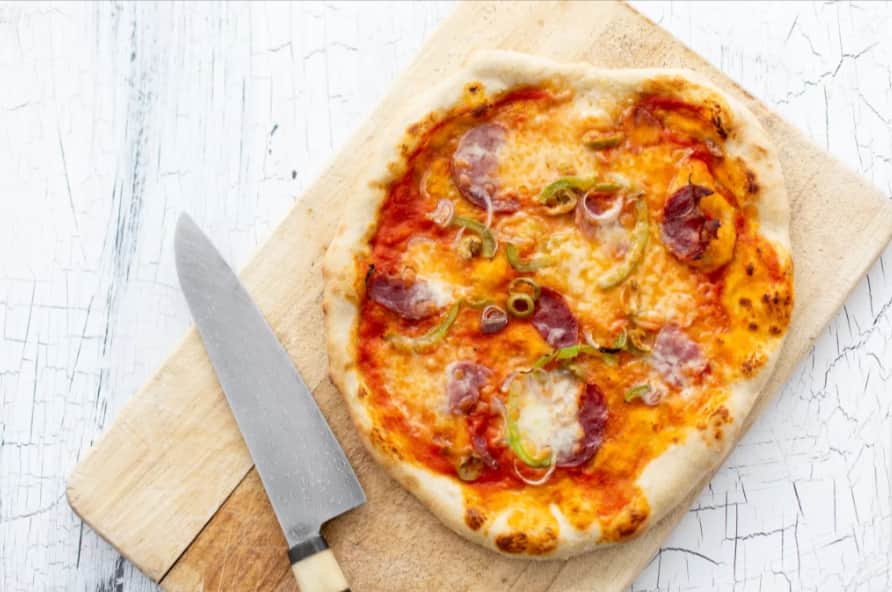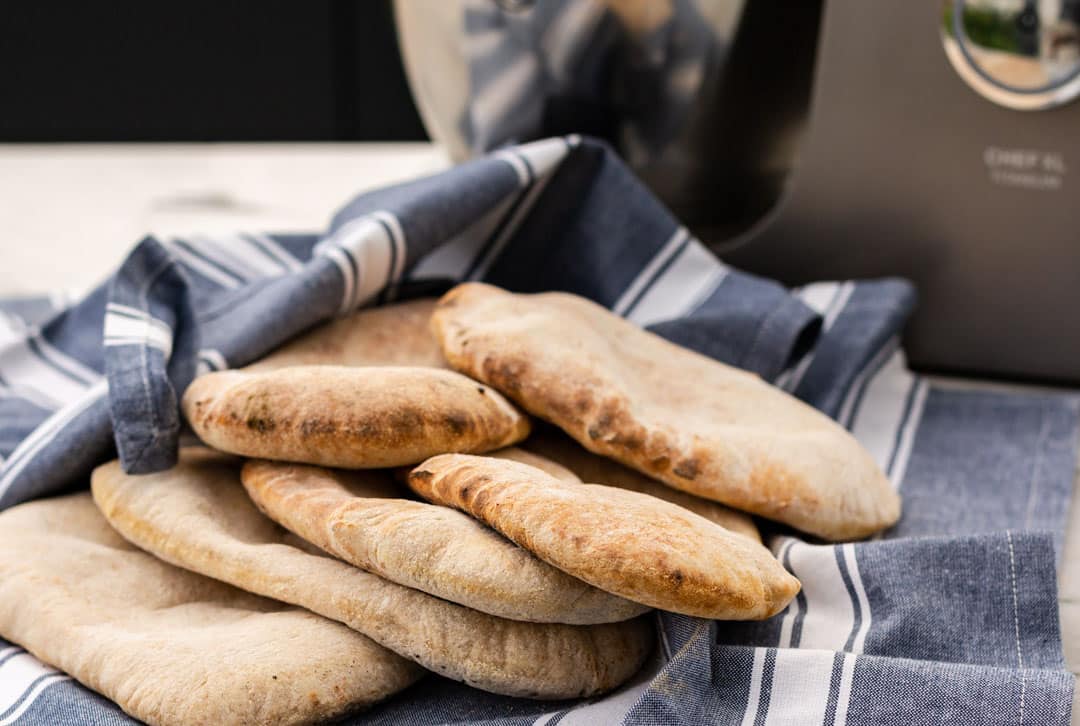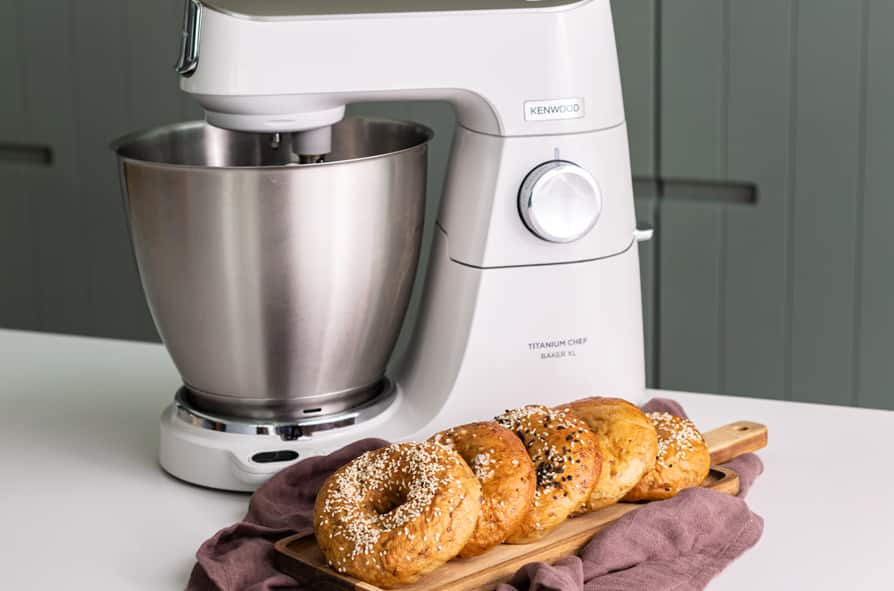

Country preference? Choose the preferred country to view local content and get a better experience.
| Serves: 6 Pittas | Chef: Patrick Ryan | Recipe course: Breads | Machine: Stand Mixer | Total time (min.): 29 |


Make the dough by combining the flours with the salt and add to the bowl of the mixer. Crumble the yeast into the flour along with the water and honey. Begin mixing the dough on a low speed. As the flour is incorporated the dough will start to take shape.
Knead for approximately 8 to10 minutes
Don't worry if the dough is a little wet. Avoid the temptation to add more flour, and be persistent that the dough will come together. The dough should be soft and supple.
When the dough has formed place the dough into an oiled bowl, cover with a damp tea towel or cling film and leave at room temperature to prove for approximately 90 minutes at room temperature
Turn the dough out onto a clean work surface, knock back the dough (knock the air from the dough) divide the dough into 100g pieces. Roll into rounds and place onto a generously floured baking tray. Cover the dough with a tea towel and allow the dough to prove for a further 45 to 60 minutes.
Preheat the oven to its highest setting. Place into the oven a flat baking tray to preheat
On a floured work surface using a rolling pin take each portion of dough and roll it into an oval shape, the dough should roughly resemble a rugby ball in shape, about ¼ cm in thickness.
Allow the dough to rest for 10 to 15 minutes.
Carefully transfer the dough onto the preheated baking tray. Each pitta bread will take approximately 3 to 4 minutes to bake. The pita is baked once it's puffed up fully. If for any reason that the pitta doesn't rise fully or sticks slightly don't worry as they make great flatbreads served with hummus or dips.
Once the pita has baked allow to cool slightly before filling as desired.
Each pitta will keep for 2 to 3 days wrapped up and can be toasted slightly before being used or alternatively can be frozen for several weeks



